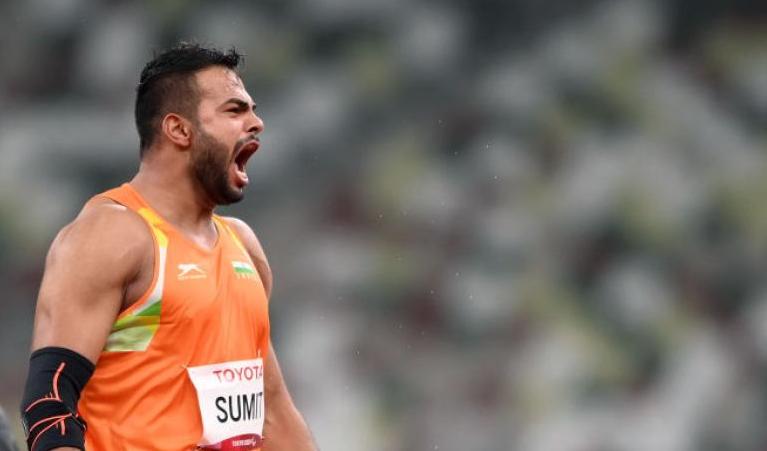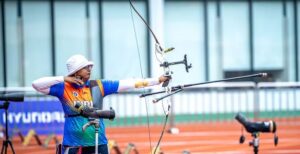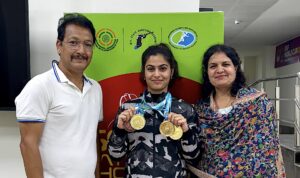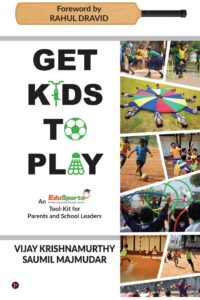
There is much fanfare – and deservedly so – as Indian athletes return home from the Paralympic Games in Tokyo with a large and unprecedented collection of 19 medals, including five gold. Sadly, instead of recognising the achievements in the Paralympic Games, the larger discourse is about how they have done better than their Olympic Games counterparts.
Is it right, or even fair, to compare the returns from Paralympic Games with those in the Olympic Games? Most certainly not. In fact, it is patently unfair to athletes who compete in either celebration of sport. It is best that everyone resists the temptation to fall in the trap and conclude that Paralympic Games success outstrips the seven-medal show in the Olympics.
Rather than celebrate all success, some who do not understand the nuances of competitive sport have chosen to berate the Olympic Games show. Each athlete, be it in the Olympic Games or the Paralympic Games, strains every sinew to be at the best in the grandest of stages. Some encounter stiffer challenges than others. That does not call for comparisons to be made.
Having said that, it is significant that only 19 other countries picked up more medals from the Tokyo Paralympic Games than India which claimed 19, including five gold and eight silver. From one medal each in Archery and Table Tennis to eight in Athletics, Four in Badminton to Five in Shooting, India had podium finishers in five of the nine disciplines it competed in.
Let us try and examine the reasons for such a harvest in the Paralympic Games. Clearly, India has done a few things right for its athletes to be able to garner more medals in one edition than the 12 won in the entire history of the country’s participation in the Games. The identification of these factors will ensure that they are sustained in the long run.
The coming together of all stakeholders – Government, Paralympic Committee of India and other National Sports Federations that organise events for athletes with disabilities, as well as Non-Government Organisations – is the single biggest factor. Instead of tugging in different directions, there was a concerted move to find a common path for India to forge ahead.
From athletes to coaches as well as bodies like the Sports Authority of India and the Paralympic Committee of India, there was a great sense of purpose that drove the campaign. Through lockdown and beyond, athletes could go about their preparation with little fuss or worry. And they reached Tokyo in good form despite inadequate competition in the past two years.
It is well known that the Paralympic Committee of India administers Athletics, Powerlifting, Shooting, Swimming while the running of the Para events in Archery, Badminton, Canoeing, Table Tennis and Taekwondo vest with the respective National Sports Federations. With more co-ordination, India may find greater success.
Whether it was in helping Bhavina Patel get a robot to her play table tennis at home or in funding high jumper Sharad Kumar’s three-year stay in Ukraine to train with sharp focus, whether it was in assisting Singhraj Adhana set up a 50m range at home or in securing special wheelchairs or prosthetics for many athletes, Government interventions played a big role.
One other reason – and this needs some serious study – is the greater awareness that the rewards that follow success in the Paralympic Games and the Asian Para Games are significantly larger and quicker than the income one can earn by taking up employment. There is possibly now a greater awareness of the benefits of playing competitive sport.
What is more, athletes and coaches have got more professional in their quest for glory and have been able to find solutions – some of them really innovative – that lead them to the podium. The Noida District Magistrate LY Suhas’ decision to get serious about competitive badminton and his decision to train at night is but one example.
So then, what can India do in the wake of the unprecedented success in the Paralympic Games?
Let us first look at it from a sports administration point of view. Since the Paralympic Committee of India runs four of the nine sport in which the nation competed in Tokyo, it must enhance its relationships with other National Sports Federations so that there is greater coordination and transparency.
For instance, till a year ago, Para Shooters would compete in events run by the National Rifle Association of India. This year, for the first time, Paralympic Committee of India conducted a low-profile National Para Shooting Championships in Faridabad. There is no harm in reaching out to such National Sports Federations and asking for their support.
Besides, State Governments can spend more on sport and create infrastructure that is accessible to Para Athletes. That way they can supplement the efforts of the Central Government in supporting elite athletes. States can genuinely reap the rewards of their own efforts and help India take more effective strides towards becoming a sporting nation.
The people at large can encourage Para Athletes a lot more than just surfacing at the time of the Paralympic Games and the Para Asian Games. But for that to happen, organisations conducting competitions must be more pro-active and share more information with the media. Then again, this is true of National Sports Federations of Olympic disciplines.
Above everything else, now that the Paralympic Games stars have occupied its collective mind-space, India must build on the gains. And one of the larger roles that Para Sport can play is to make more Indians aware of inclusivity, especially in education and in employment of persons with disabilities. More importantly, more will become more sensitive towards them.
The Image of Sumit Antil is courtesy International Paralypmic Committee.
This piece was first published on CNN News18 website on September 6, 2021 and can be found here:





